|
The topic of today’s session was “Student Leadership.” I started by asking them to think for a minute about their goals in life, and/or the goals of their peers. What do they most want out of life? The answers that came back were pretty typical: a satisfying career, a strong family, and meaningful friendships. I then told them we were going to have a debate I would argue that staff should do all the leading, and they would argue that students should also lead in the student ministry context. I was pleased that they had a lot to say. Then, we proceeded to do a Bible study on the paradox promises of Mark 8 and 10: Jesus promises life, security and greatness to those who will lose their lives (Mark 8:34-38), leave their families and homes (Mark 10:29-30), and become servants in his name (Mark 10:41-45).
The reality is that Jesus’ invitation to his disciples is that of IFES to student leaders: lay down your lives for others, leave what is comfortable, and become servants to fellow students, all because you believe Jesus’ promises and desire what he is offering: real life, relational security, and a chance to make a difference in the lives of others. I concluded by saying that it was too small a thing for IFES to work with student leaders so that they would lead IFES small groups for a semester or two years of their lives while university students. IFES invites students into leadership not simply because it makes for more effective IFES fellowships, though it does, of course. But IFES invites students into leadership to offer students the kind of learning and training that will make them successful in relationships their whole lives long. Few other courses or opportunities in the university setting will teach them the skills and character they will need to deal well with conflict, to listen to others with compassion and yet to strive for deep influence, and to make choices to serve and to prefer others’ needs to their own. This kind of perspective will help them to experience success in the most important relationships they will ever have, so that they would grow into being the kind of parents, spouses, and friends that they dearly want to be. Of course, this is my own testimony. I am grateful for the quality of family and friend relationships that I enjoy, and aware of my debt to that same IFES/IVCF ministry that called me to follow Jesus and to learn from him to lose, to leave, and to serve in order to gain, to find, and to have impact.
0 Comments
I (Rich) heard poignant stories today while sitting at lunch with two staff workers. One was from Ukraine; her dear friends had been IFES staff in Crimea. After the annexation of Crimea by Russia, they would have been forced to exchange their Ukraine passports for Russian passports. They were not prepared to renounce their Ukrainian citizenship, so they moved. But then that city was overtaken by separatists, and they had to leave again, suddenly, this time with nothing but the clothes on their backs. This couple, with their baby, is now living in a shelter and trying to figure out how to reset their lives so that they can return to their ministry to university students in Ukraine. I was grateful that conference participants were given a chance to make an offering toward the needs of this couple.
The other staff person at our table had served in the Armenian Army before coming on staff. He had been stationed on the Armenia-Azerbaijan border for most of his time in the army, and had seen friends killed or injured in the daily exchange of sniper fire. One of the many signs of God’s work this week is that Ukrainian and Russian students and staff, and Armenian and Azeri students at staff are building friendships here. The worship is being led by a multi-national team that includes participants from countries in conflict, yet working together as a single team, leading a multi-national family in worship together daily. And yet the reality of these conflicts and their impact on the lives of real people is not far from those who are here. Lisa and I have been speaking the last few days at a conference for IFES staff and students from throughout Central Asia. It is called Formacion, a Spanish word meaning “Formation” and indicating the transforming work of God in our lives. The conference is taught in English and Russian, but talks are being translated into Armenian, Georgian, or Azeri (the language of Azerbaijan). At home, I find it distracting when someone is talking while I am leading a group session, but in this case I am grateful for those talkers—they are working very hard to translate my words into the language of the small group of students from their country so that they can understand what is being said. What would feel like a distracting cacophony has become for me a euphonious symbol of the challenges and the joys of cross-cultural communication.
 Our time in Moscow was both poignant and instructive. As we understand our year-long journey, it is a hybrid of opportunities to coach and train gifted leaders, and opportunities to learn: how churches and student ministries are doing, where Westerners might more effectively come alongside them, and what not to do. Moscow was heavily weighted toward that latter task. It’s easier, in many ways, to be in settings where we are teaching—so far our teaching has been well-received and has served as a natural springboard for relational coaching conversations that seem to be genuinely helpful. Moscow was less satisfying, but an extremely valuable part of our education and formation. Originally Moscow was geographically ‘on our way’ between Novosibirsk and a final conference in Ukraine (which has for good reasons been moved elsewhere). So, we made efforts to see if any training or teaching we might do would be welcomed there. Our main contact there replied, essentially, “Nyet.” But he did also generously host us in a dorm room in his church building, walk us around his stunning city, and talk at length with us over several meals in his home. His self-taught English is quite good, and his insights about the state of the church in Russia were wise. He narrated the massive influx of eager Westerners who rushed in headlong as the Soviet Union collapsed. Buildings were hastily built, praise choruses translated, and huge stadiums were rented for evangelistic rallies and mega-concerts. We from the United States came, we saw, we thought we had conquered; we patted ourselves on the backs and headed home. I know that is an oversimplification and I don’t intend it to dishonor the many who came and served in humility for long stretches—they are true saints. But it was telling that when Rich attended a meeting of pastors, they asked each other in Russian, “What does he want? Is he looking for money? What does he want?” Our pastor friend shared about a pair of zealous teachers (mercifully not from America) who came to Moscow recently on a scouting trip to set up a big event where they could get a platform for their self-reportedly immense preaching gifts. They were looking, the pastor said, for “free ears.” I groaned at their arrogance. At times it was painful to sit through the meals at which the pastor lamented the mistakes of our kin. We’ve made similar ones over the years. And different ones. But we worked hard to listen, and by the end, his parting words were very warm. He said we seemed like the kinds of people who would come alongside, encourage, and mentor others, not simply tell them what to do. I replied, “Yes, we HAVE free ears.” He smiled broadly. I think we rebuilt some trust with this pastor—not all Westerners just want to swoop in and perform for a big audience and exit stage right. Offering our ears freely is chief among my hopes for our year. I’m reminded of the call to those who do medical work: “First, do no harm.” We’ll inevitably make minor cross-cultural mistakes, but I hope that in general we’ll do no lasting harm in the places we go! If beyond that we can become more intelligent about global mission today, excellent. If on top of that we get a chance to make a deposit of good teaching and training, and an encouraging relational investment in those who live and minister in the places we go, even more excellent. For this time around in Moscow, keeping our ears free and our hearts open seemed to be all God asked of us. "And Jesus came and said to them, ‘All authority in heaven and on earth has been given to me. Go therefore and make disciples of all nations, baptizing them in the name of the Father and of the Son and of the Holy Spirit, and teaching them to obey everything that I have commanded you." Matthew 28:18-19
I spoke with a "Ana" yesterday after our leadership training sessions here in Novosibirsk, about her desire to one day go to India and, as she said, "be a mother to those who have no mother" in an orphanage. She has trained as a kindergarten teacher, and receives a good salary, but she is praying for her mom to change her attitude and allow her to quit her job and take a much lower-paying job at an orphanage near her home in Siberia, while she continues to pray about and prepare for her growing sense of call to India. We spoke (through Julia, the IFES staff here and our partner as interpreter) and prayed together for her mother's change of heart and God's granting of wisdom to them both. We are being hosted here by Alex and Julia, who have recently returned for a second visit to Vietnam as they have been praying about their sense that God is calling them to minister in Vietnam. They ended up going to Vietnam recently after having received gifts of time and funding, with a very affordable 10-day, all expenses trip for $1000 falling in their laps. When the arrived in Vietnam, they realized that the hotel they were staying at was owned by a Christian woman with a heart for ministry and that, during their stay, it was the site for a S. Korean group hosting an English-language camp for Vietnamese students who didn't know Jesus. So they connected with the group for the week, sang (in English!) worship songs with the Koreans and the Vietnamese, and met several pastors and others who could help them think through what a missionary calling to Vietnam could look like. We were inspired listening to Alex and Julia telling their story of the miraculous way God provided for and arranged their trip. Last week in Central Asia we met several people who were themselves making plans to move forward with a calling to cross-cultural ministry. One student worker, "M", leaves next week with two other men for a cross-border trip that will take him into another "Stan" where the US currently has troops engaged in conflict. His three-week trip is intended to bring medical supplies, aid and the gospel to a small pocket of rural people with whom he can share the gospel because he speaks the language. His journey there will involve a 3-day's hike to the village, which is located somewhere above 14,000 feet in elevation. Since the time I went to my first Urbana missions conference as a student in 1979, I have heard about the challenge to "Finish The Task". This has been a reference to the task of bringing the gospel to all nations, and perceived as an effort to complete the challenge of the great commission of Matthew 28. (This has often been explicitly tied to the goal of preparing the world for Jesus' return.) The internet informs us that 450 people groups still have no church, witness or Bible in their language. But it has always seemed that the task Jesus is referring to is about turning people into missionaries. When is a group reached? When it has been preached to? When there is an evangelizing church? Is it really Jesus' vision that the Western Church will "finish the task", while large parts of the globe only have a witnessing church that is not engaged in the task? Or is "the task" that of becoming a missionary-sending church? Of course I love hearing about American friends who have decided to go to some part of the world in the missionary outreach of the Kingdom, but I cannot tell you how inspiring and encouraging it is to hear about people in this part of the world gaining vision for God's global mission and pursuing his purposes for the world. One of the (few) ways youth honor adults in the United States is that they are taught to refrain from asking adults their ages. Here, I (Lisa) was a little startled to be asked twice in a day how old I was, around a table full of youth who had clearly appointed their best English speaker to ask what they all wanted to know. I was ever so slightly tempted to say, “In our culture that’s a rude question.” That would have brought them great shame, and I was not really tempted, for it was asked with so much friendly intent. One boy said, when I gave my answer, “You are very well saved.” I loved that! I’ve never warmed to the phrase, “Well-preserved;” it always makes me think of a frog in formaldehyde or at best, a Mason jar of canned plums. They’re not bad but fresh ones are better by far. But well saved--ah, now that has rich theological implications as well as reassuring data retrieval connotations. At my age, I am getting more prone to losing things like keys and glasses; our first day here I left a favorite water bottle on a van. I distressingly promised our van to two different groups for a couple of overlapping days while we are gone. Russian phrases and letters are not finding themselves to be well-saved within the crevices of my cranium. But what’s at the core of me is well-saved indeed, kept by my Keeper, the one who holds my life and numbers every greying hair.
And, as it turns out, I have been well-honored, too, age questions aside. As I sat down the first morning for breakfast, a handsome young man politely insisted that I trade seats with him. Sure, but why? It turned out that I was next to the tea pot, and the younger must serve tea to the older, so he took his place in order to properly serve me. I was touched and honored. Rich was honored by many kind words on the final day of camp. On this journey, we are confident in the one who has saved us and has promised to save us, and when honor comes as well it is a delightful bonus, whatever form it takes. 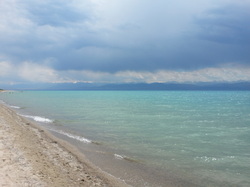 (Note: We have been asked not to name the country in which we have been serving this past week, nor its neighboring one, and to speak obliquely about the nature of our work here.) Our time in our first country was more challenging than we had anticipated, and more inspiring and rewarding than we could have imagined. First, we had not known that a group would be coming from a neighboring country which is quite hostile to those follow the One we do. They traveled many miles to get here, seated scattered apart on the bus they took so they would not be identified as a group at the border, and they did not take the printed material home with them, since it could incriminate them. Their very presence in camp was incredibly moving: the first evening they showed up in indigenous clothing and did gorgeous regional dances for us. They are a strikingly beautiful people, with warm, open hearts. Part of what was so moving was that the country we’re currently in has had many members of this other ethnic group living here peaceably in the past, but a violent eruption four years ago caused many of them to leave. So it was a beautiful symbol of reconciliation to have them here, and their courage in coming at all inspired us. But their presence has also highlighted for us how very remote we are here. It’s a bit humorous that our first invitation on this journey has involved so much cultural and linguistic distance. On Rich’s many trips to Eastern Europe, translation has really been surprisingly smooth, to the point that he’s become quite confident in the ease of teaching via translation. In Latvia, for example, where we had traveled as a family in 2005, translation had been needed into Estonian, Lithuanian, and Latvian, but the student movement had the resources to purchase headsets and it all happened with an unobtrusive ease. Here, translation was needed into Russian and simultaneously into two other Central Asian languages. The first evening this took place in a chaotic, distracting mélange. It felt much more like Babel than Pentecost! Rich was exhausted as the session ended, and we both felt unsure of how it had gone. We asked for G to encourage us. The next morning we made a few key adjustments to the tables, asked one of the simultaneous translators to be just a tad quieter, and subsequent sessions went much more smoothly. I tend to think of Babel as a big mess, and Pentecost as a lovely, flowing miracle. But it strikes me that even if it felt miraculously smooth as Peter spoke, Pentecost birthed a grand mess. Cross-cultural mishaps were erupting within that new community within weeks of its formation. On one level we contributed to the Babel feel of camp. And let’s face it, so did these brave, beautiful new friends who risked so much to be there. Camp would have flowed more easily without them. But my life would be poorer without the chance to see their love and hear their stories. We pressed our translator into service for an afternoon and sat outside hearing two of them share stories of what they have suffered to follow the one we do. It was an unforgettable and deeply moving experience. Our camp was on the shores of an eerily beautiful high-mountain lake. Our days began by dancing the Macarena and the Cha-Cha Slide outdoors, and they ended with games, dancing, and hilarious displays of talent. In between, passionate, gifted students who may just change their nations worked very hard, and gained skills, convictions, and tools for that endeavor. We are grateful to have played a small part in that. Just a quick note that we have arrived here in Central Asia and will be moving on to the conference location in a few hours. Thanks for your prayers. Had very little sleep over the last two overnight flights, but expect to catch up soon.
|
Archives
April 2024
AuthorRich and Lisa Lamb Categories |
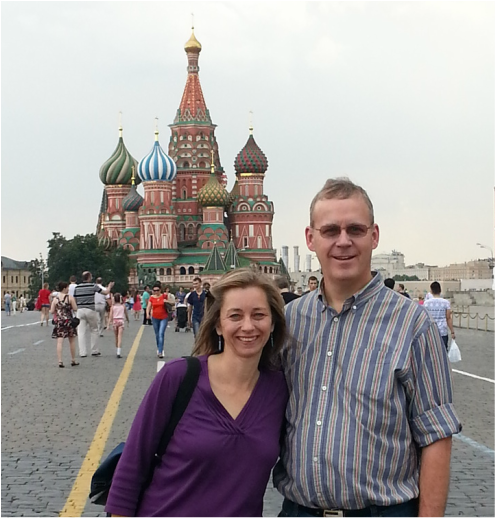
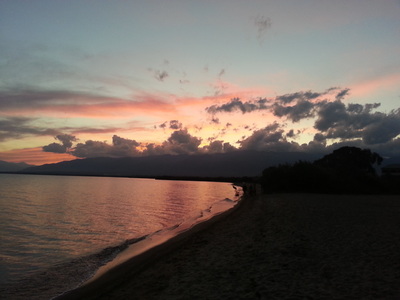
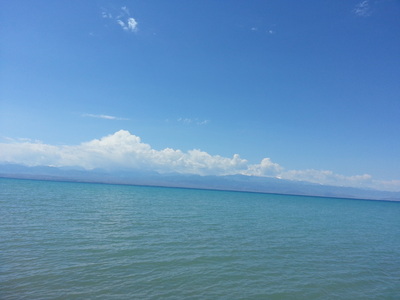
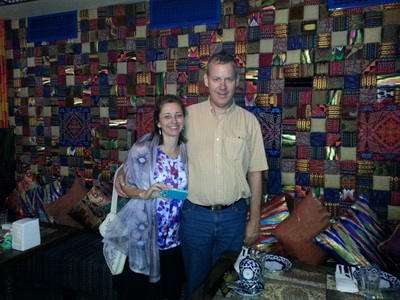
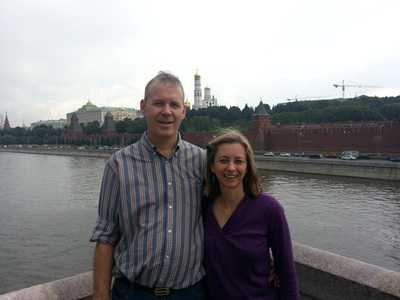
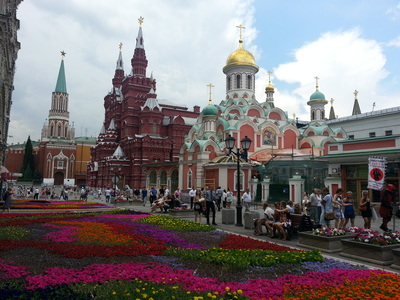
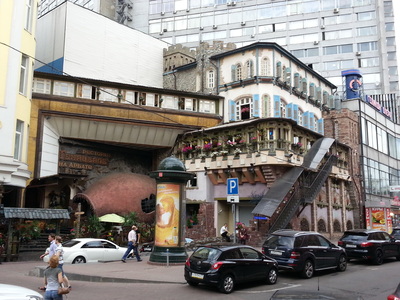
 RSS Feed
RSS Feed